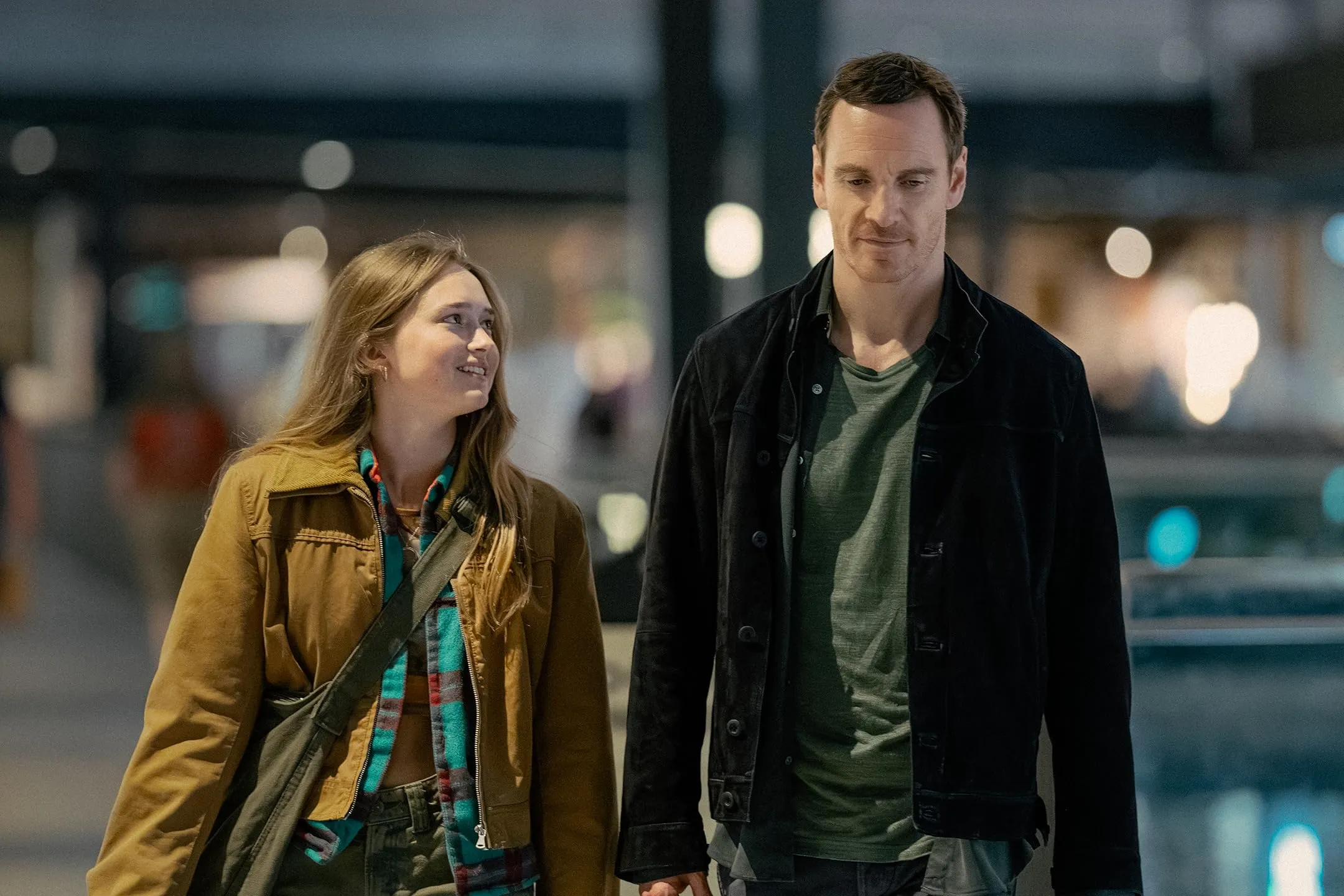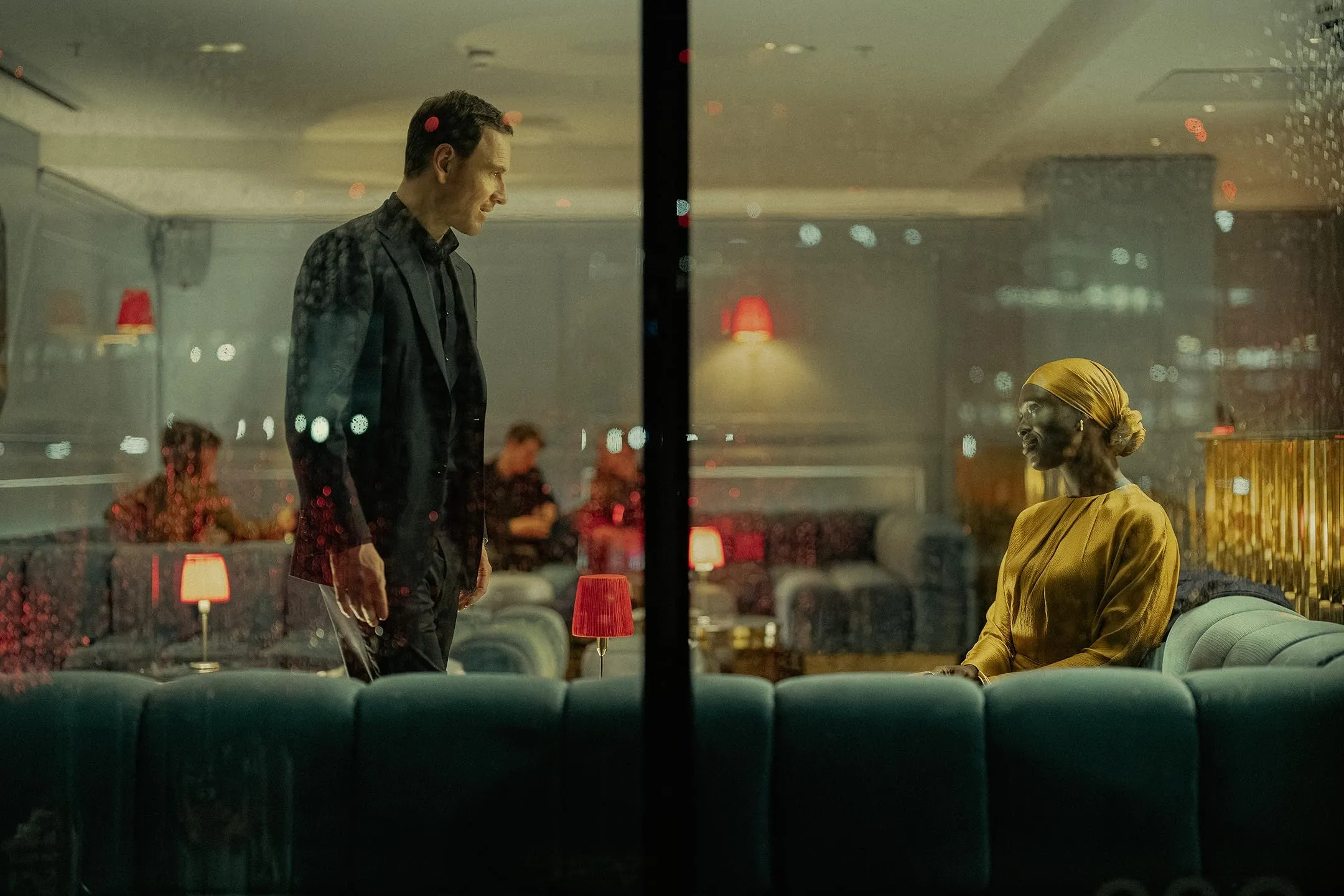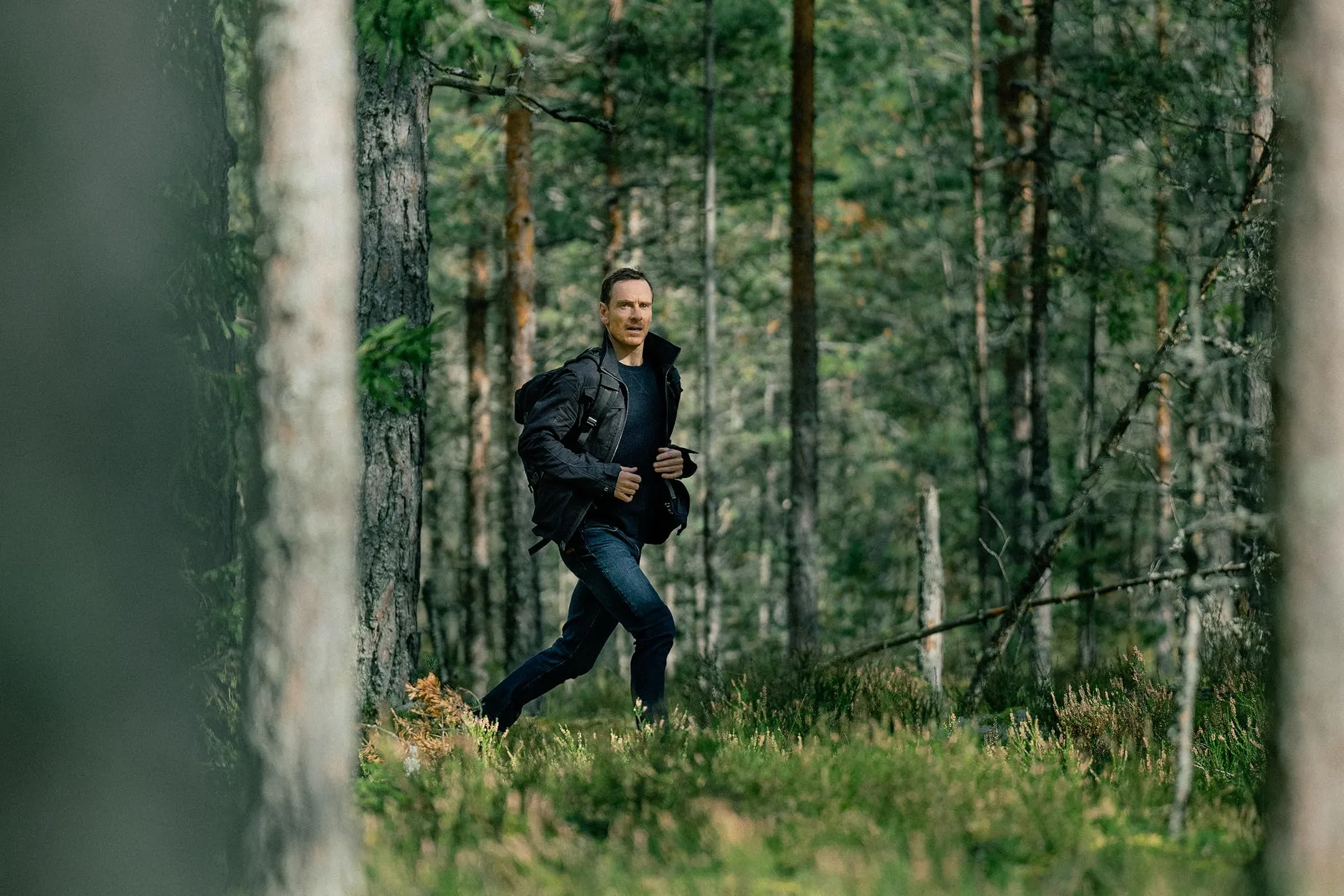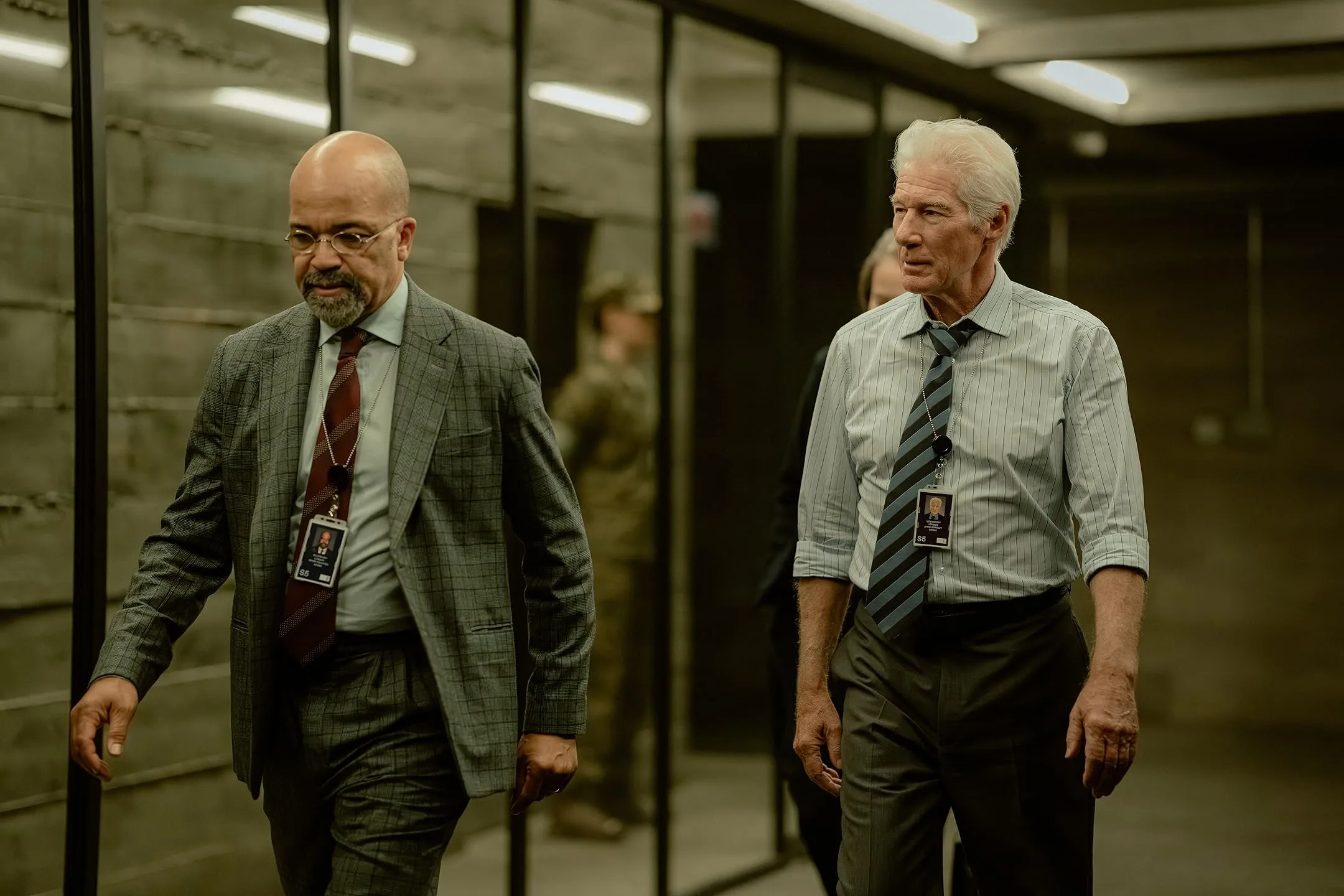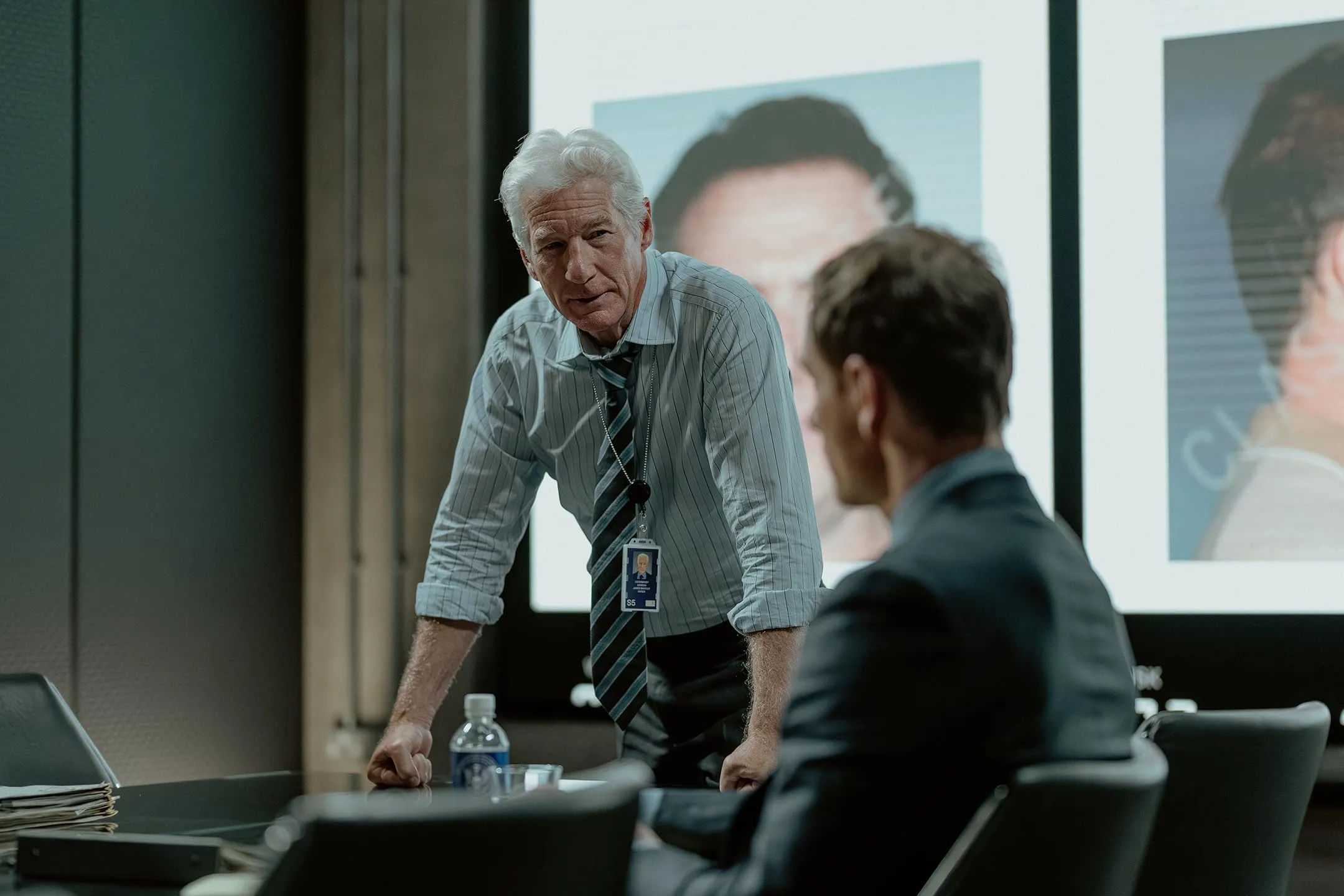Based on the popular French series The Bureau, Showtime’s The Agency has enormous potential. Its star-studded ensemble includes Michael Fassbender, Jodie Turner-Smith, and Jeffrey Wright. Produced by George Clooney and directed by Joe Wright, the show promised a new spin on the espionage genre.
Fassbender plays “Martian,” a CIA agent who returns from Ethiopia after an abrupt end to his passionate love with Sami Zahir (Turner-Smith). At London Station, he navigates bureaucratic obstacles and personal complications while attempting to acclimate to civilian life.
The series alternates between a gritty spy drama and a more pulpy thriller without really committing to either. While seeking to incorporate modern geopolitical themes, the work lacks substance. The result is a mediocre examination of intelligence work that fails to capitalize on its tremendous talent.
Despite Wright’s outstanding performances and brief moments of visual excitement, “The Agency” ultimately disappoints. Viewers may be better served rewatching “Slow Horses” or waiting for this series to potentially find its stride for genuine spy thriller delight.
Espionage, Emotion, and Entanglements
In Ethiopia’s sun-kissed highlands, CIA spy Martian (Michael Fassbender) has been living a complicated double life. His most powerful connection? A passionate romance with Sami Zahir (Jodie Turner-Smith), a married college lecturer who serves as more than just a brief distraction. When orders arrive for Martian’s return to London, he quickly cuts ties, leaving behind an unusual relationship.
Returning to London Station is like walking into another universe. The impersonal offices and bureaucratic conflicts contrast sharply with his rigorous undercover activity. Martian navigates a political environment in the office, sharing space with Director Henry (Jeffrey Wright) and Chief Bosko (Richard Gere), whose frequent arguing hints at deeper institutional tension.
When Martian is about to settle into a more peaceful existence, Sami reappears, upending his carefully crafted life. Her sudden homecoming forces an agonizing moral choice: career dedication vs personal yearning. Meanwhile, he’s juggling a strained relationship with his daughter and mentoring a rookie agent, adding complexity to an already complex environment.
The London Station becomes a microcosm of institutional power dynamics. Martian observes coworkers communicating with foreign assets, each interaction laden with potential peril. Internal disagreements rage among leadership, with Henry and Bosko representing opposing operational ideas.
Martian’s internal conflict is at the heart of “The Agency”: a man locked between many identities, grappling with the personal cost of a life spent in the shadows of international intelligence.
Spies, Souls, and Stellar Performances
Michael Fassbender inhabits Martian with his characteristic, captivating, and disturbing intensity. His portrayal is reminiscent of his performance in “The Killer”: a figure so meticulously crafted that emotion appears to seep through minute fractures. He’s cryptic, calculated, and emotionally constrained, but Fassbender ensures that something human lives beneath the cool surface.
Jodie Turner-Smith transforms what could have been a typical love interest into an engaging character. Despite the limited screen time, she reveals deeper depths that must be investigated. Her chemistry with Fassbender is modest but powerful, a relationship based on depth rather than traditional passion.
Jeffrey Wright owns Henry’s role, giving the kind of performance that audiences have come to anticipate. Charming, hyper-intelligent, and razor-sharp, he adds seamless gravitas to the intelligence world. His exchanges with Chief Bosko generate delightful workplace tension, elevating each scene.
The supporting cast reads like a who’s who of powerful actors. Richard Gere’s portrayal of Chief Bosko adds gravitas to the film, creating an interesting contrast with Wright’s Henry. Katherine Waterston plays Naomi, Martian’s manager, with delicate restraint. Even minor roles, like John Magaro’s Owen, enrich the series’ rich institutional landscape.
Individually outstanding, these actors face a narrative that never fully meets their potential. Their cumulative talent shows that the show is desperately trying to break free from its restrictions.
Shadows of Sacrifice: The Human Cost of Espionage
“The Agency” dives deeply into the psychological terrain of covert operations, examining how operatives like Martian effectively become living ghosts. His persona is a fluid fabrication straddles various worlds: the passionate lover in Ethiopia, the detached intelligence officer in London, and the estranged father attempting to reconnect with his daughter.
The series’ dramatic core revolves around a basic human quandary: what happens when professional commitment collides with personal passion? The relationship between Martian and Sami becomes a source of tension, illustrating the impossible choices that intelligence agents must make. His hasty departure from Ethiopia and subsequent emotional retreat show the harsh reality of survival in his high-stakes world.
Reintegration emerges as a significant difficulty. Martian navigates London Station like an alien in his professional ecology, attempting to recover a sense of genuine connection. His encounters with colleagues and attempts to rebuild a relationship with his daughter are analogies to the emotional amputation demanded by his vocation.
While the show attempts to incorporate modern geopolitical themes (name-dropping individuals such as Trump and Putin), these ultimately feel like mere window dressing. The narrative raises bigger concerns about surveillance and global policing but refrains from making startling comments.
Finally, “The Agency” depicts espionage not as a dazzling adventure but as a profound act of personal sacrifice in which human connection is the most dangerous mission.
Spy Craft: Visual Storytelling Beyond Words
Joe Wright transforms “The Agency” into a visual feast, enhancing even the most routine sequences. Simple moments, like Fassbender sitting in a car with Jeffrey Wright or Harriet Sansom Harris, can be hypnotizing. The cinematography communicates a language of subtle tension, with each picture feeling expertly composed but realistic.
Jack White’s somber rendition of “Love is Blindness” serves as more than just the theme song. It’s a sound representation of the Martian’s emotional state: vulnerable, complex, and slightly wounded. The soundtrack alludes to the character’s inner anguish, implying depths that the narrative occasionally struggles to explore.
Wright’s direction adds a unique visual language to the spy genre. The color selection is modest yet deliberate, with London’s bureaucratic offices against Ethiopia’s warmer settings. Each area becomes a character, reflecting the emotional landscape of the agents who inhabit it.
While the show strives for realism, the production design strikes a difficult balance between procedural correctness and dramatic depiction. The result is a universe that feels familiar and slightly enhanced, a wonderful mirror for the complex inner lives of intelligence agents.
Narrative Drift: When Spy Stories Lose Their Momentum
“The Agency” moves at the speed of diplomatic negotiations. The first episode makes little progress beyond character introductions, creating a narrative setting that feels more like a still life than a dynamic thriller. This slow pacing may appeal to viewers who enjoy sophisticated storytelling, but it risks losing the audience’s interest.
The series fails to find its narrative voice, alternating between harsh realism and espionage drama. One moment feels like a routine workplace procedure, while the next suggests greater global intrigue. This discrepancy becomes the show’s most fundamental narrative obstacle, keeping viewers from becoming immersed in its world.
Character arcs evolve like precisely crafted intelligence reports: painstakingly yet without urgency. Martian’s emotional geography is implied rather than explored, with flashbacks and brief conversations providing glimpses into his rich backstory. The outcome is a tantalizingly ambiguous protagonist, more sketch than a fully drawn portrait.
While the objective appears to be a more cerebral approach to the spy genre, “The Agency” risks losing sight of telling a fascinating story.
Potential Unrealized: Spy Drama’s Delicate Balance
“The Agency” emerges as an enlightening study of untapped potential. With a cast that reads like a Hollywood dream squad and visual styles that enhance even boring situations, the series teases viewers with moments of genius. Michael Fassbender, Jodie Turner-Smith, and Jeffrey Wright give performances that hint at larger tales to be explored.
The show seeks to carve a unique place between procedural reality and character drama in the crowded realm of espionage fiction. However, its narrative faults and slow pacing ultimately defeat its ambitious aim.
For die-hard spy genre fans and patient viewers who value detailed character studies, “The Agency” may have some intriguing moments. Those looking for fast-paced action or tightly strung narrative tension will most likely be disappointed.
The series is a noble endeavor that falls short, reminding us that even the most promising components do not guarantee a good meal.
Recommendation: Approach with reasonable expectations. This is a sluggish burn that may never fully ignite.
The Review
The Agency
"The Agency" is an enticing but ultimately unsatisfying debut in the spy genre. Despite an outstanding ensemble led by Michael Fassbender and a visually appealing approach, the series struggles to turn its potential into a cohesive narrative. The show's careful pacing, which attempts to provide depth, ultimately creates a sense of narrative stasis. Structural storytelling flaws consistently overshadow brilliant performances and moments of visual grandeur. The series feels like a promising manuscript that never quite transforms into a whole novel - full of exciting notions but lacks the moment necessary to properly grab its viewers.
PROS
- Exceptional cast with top-tier acting talent
- Visually stunning cinematography
- Nuanced exploration of espionage psychology
- Compelling lead performances by Fassbender and Turner-Smith
CONS
- Extremely slow narrative pacing
- Inconsistent storytelling tone
- Lack of narrative momentum
- Underdeveloped character arcs
- Fails to fully explore intriguing plot potential
- Disconnected narrative threads









































